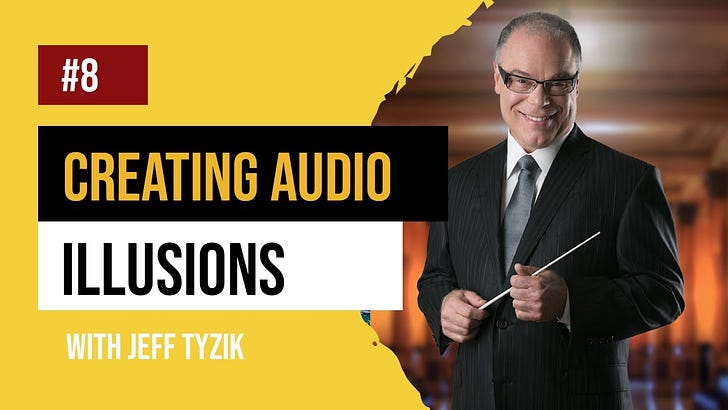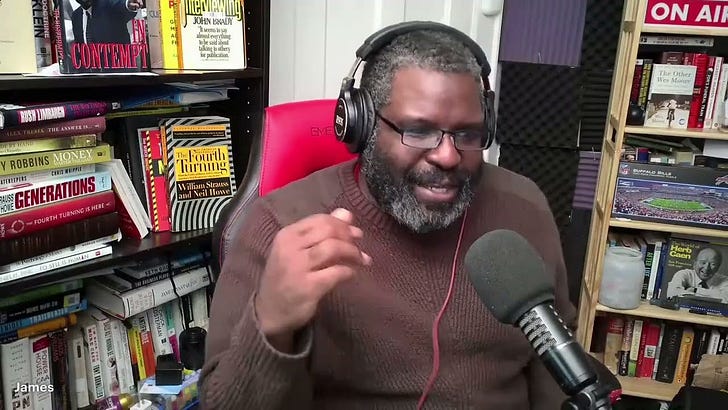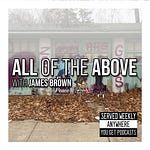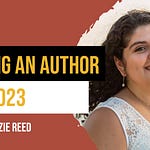This is part of a conversation between Grammy winning orchestra conductor Jeff Tyzik and journalist and podcaster James Brown. Tyzik describes the difficulty of covering modern music with an orchestra and how should we define classical music
JAMES BROWN: There are lots of conventions about orchestral music. There's a box that I think most of us put it in. Some would just call it classical. Is that the correct term? Do you like that term? How do you feel about it?
JEFF TYZIK: Well, music is so diverse and there are so many eras of music. I mean, when people think of classical music, they kind of go back to the period of time of Haydn and Mozart and Beethoven, Hubert and Chikovsky, the Eastern European music that came to America through the immigrants that brought it and that kind of thing. So that's when they think of classical music. But Bernstein is classical. But also Bernstein wrote West Side Story.
Out of the box: Part 1 of a conversation with conductor Jeff Tyzik
Listen now (35 min) | This is part one of a two part conversation between Grammy winning orchestra conductor Jeff Tyzik and journalist and podcaster James Brown. Tyzik shares his intense travel schedule and how he managed to continue it during the COVID-19 pandemic. He also compares working in front of audiences large and small.
JEFF TYZIK: You know what I'm saying? And there are so many Latin composers that got short shrift, like Manuel Defian and even Revelta and Marquez, these contemporary composers. And there's a whole music, a new music. And kind of if you think about also George Gershwin. I mean George Gershwin's. Incredible music. He wrote shows. He wrote the first American opera, porgy and Best. Basically Rhapsody and Blue and American in Paris. And the Concerto and F are two phenomenal classical pieces, but they contain within them elements of jazz and blues and different things like that.
And I must say that black composers that write classical music have been overlooked over the years, and now there's a resurgence in that. And I just did a concert, and it was really interesting for me because I picked five pieces of music, every one of them. This composer, we did this fanfare of his, and he was born in Rochester. Then we did a piece by the composer Okoye, and it's from an opera about Harriet Tubman.
And Harriet Tubman didn't live far from Rochester. And the underground Railro
ad went right through Rochester. Okay? Then we did a piece by William Grant Still, who actually became a protégé of Howard Hansen. Howard Hansen is a great American composer who was also the dean of the Eastman School of Music. And he wrote this Afro American Symphony, and it was programmed in 1934 with the Rochester Philharmonic.
Premiering that piece in the Eastman Theater in 1934. Incredible second half. A new, young composer, James Lee compared to me. He's young, he's in his 40s. Incredible composer. And he wrote, freedom's. Genuine dawn. And this was a piece for narrator and orchestra. And it's a Frederick Douglas speech. One of his speech was the speech about the 4 July. What does that mean to us? And he said it to music. It was an incredible piece of music.
JEFF TYZIK: It was only written in the last three years. That comes under the umbrella of classical music. And our final piece was Duke Ellington wrote a ballet called The River. And it is really a brilliant piece of music, and it's written for orchestra. So there's a whole genre of music that is actually classical music, but it is anything but the music of the 18 and 19 hundreds, if you know what I mean. So there's that box.
There's classical, then there's popular. I mean, the orchestras, they sell these boxes subscribe to our classical series, subscribe to our pop series. But sometimes in the pop series, I'm doing what's known as classical music. And sometimes on the classical series, we're doing Duke Ellison jazz. So to me, there are no boxes.
JAMES BROWN Precisely, I think, at doing an examination of your career and your background and the type of music you've made and who you've worked with, it's clear that you like to break that box. You kind of want to throw it up against the wall. There's a lot of preconceptions that orchestral music or classical music, that it's a white genre, that it's an upper crust genre. In your careers, your choices. It seems like you're like, hey, why can't I work with Leslie Odom Jr or Wynonna Judd? And there's more. How common is that perspective, and why do you make that choice?
JEFF TYZIK Because I made it from the beginning. I am like, we're all humans. You go back 4.1 billion years, we're all from the same matter. You go back 5 million years, we're all from the same genome that started, you know what I'm saying? So I don't like labels and boxes. I think it's exclusive, if that's a word. I hope it is. I made it up.
JAMES BROWN Is it now?
JEFF TYZIK Yeah. I don't like these fences and boxes and rules. And normally in a classical concert, the only time you applaud is at the end of the whole piece, right? So in this concert I was telling you about the concert with Black Composer music, there were let's see, if you break up all of the pieces into movements, there were 1234-5678, 910, 1112, 1314. There were 17 different elements, right? The audience applauded after every single one. That night, we broke the barriers down. It's like, you love this music. You want to applaud, bring it on. You want to be engaged in this concert, bring it on.
I don't like the boxes. I just want people to come in and experience something in an honest, emotional way and react to it the same way and not like, oh, the etiquette is you can only do this and you can only do that. There are times when there are amazing ethereal moments happening where you prefer somebody doesn't yell out to break the spell. Which is funny, because I read this thing on the Internet, there was a concert in Los Angeles recently and I forget what piece they were playing, some revel or something.
And at this moment in the piece, this woman sighed so loud in the room. It was kind of like it was an amazing thing to hear this sound of the human at this one moment in the room and like, the whole audience. But yeah, even though I went to a conservatory, I don't really come from the restrictive sort of background of classical musicians who are taught a certain way and certain etiquette is expected.
Of course we want to have respect and not interfering with concerts in a stupid way. But if the audience wants to give you back something, applause or energy, I love it. I think it makes it more meaningful for everybody who comes. And I want people to come and just be comfortable, enjoy themselves, get something out of the concert, be touched. And I think the musicians love it too. I noticed the RPO and the night of that concert, actually we did two different nights.
Audience after every tune was applauding. I mean, they were like, wow, this is so cool. This is really great. So we have to touch people.
Reach me at James@rochesteraccent.com or jamesbrowntv@gmail.com. Or leave me a message at 1-585-484-0339












